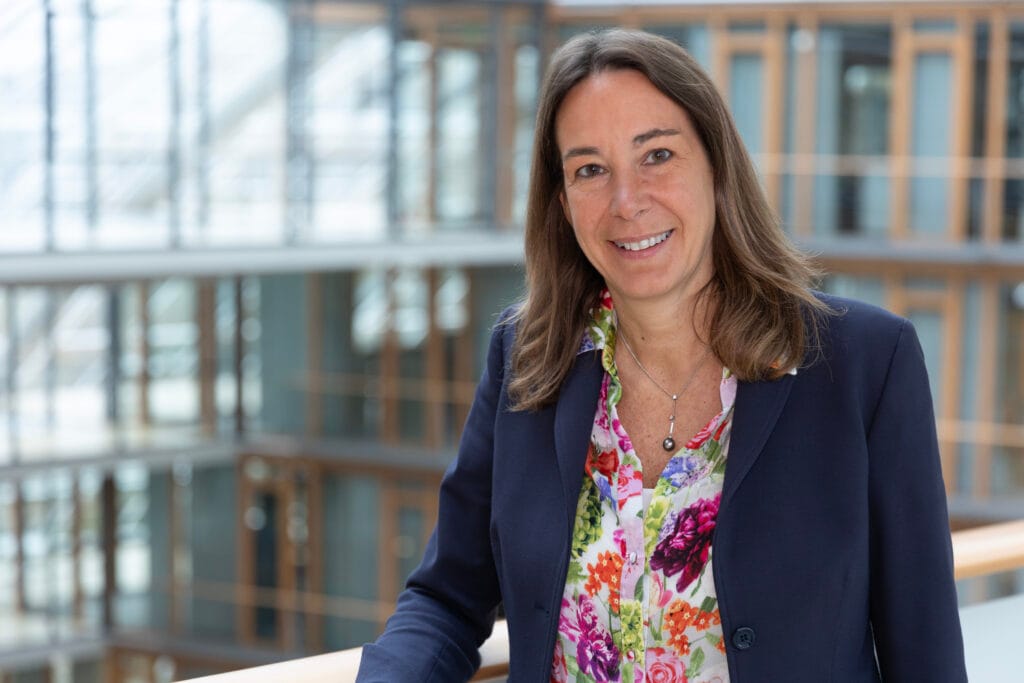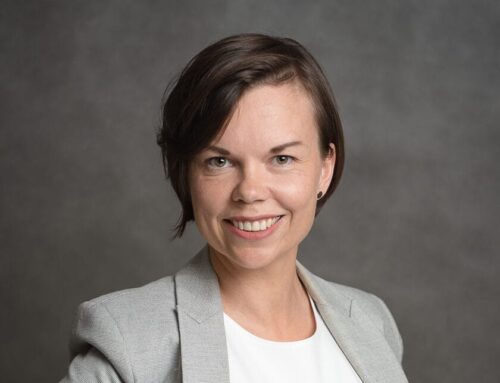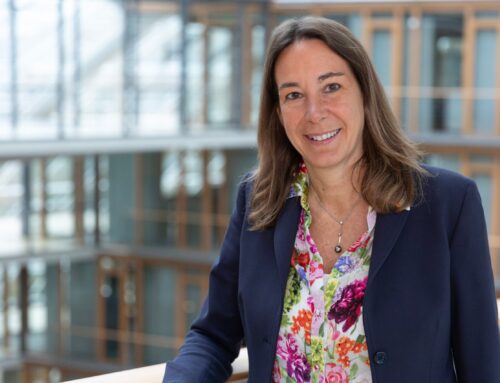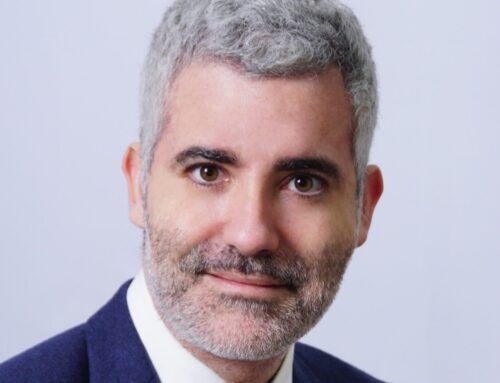
European elections have now been held across EU Member states. Against many odds, they wielded political equilibria overall comparable to the ones from 2019. Participation is only slightly higher. The EPP group came first, harvesting 26,2% of the votes (gaining 23 seats) while the S&D, losing four, is still a feeble second. Notable changes come with the decline of the Greens / EFA alliance, who lose 18 seats, and of the Renew group (-23 MEPs, before the Czech PNO left the Group on June 21) and, more importantly, with the quite dramatic rises of the ECR and ID groups (+ 4 and 9 seats). These changes will prompt a rightward shift in the Parliament while probably not impeding the likely formation of a renewed, broad S&D-Renew-EPP coalition. We ask Simon Hix, Professor at European University Institute (Florence) and Stein Rokkan Chair in Comparative Politics to share his analysis of the causes of the results, the elections themselves, and the consequences.
Q1. In the run up to the European elections, how would you characterise the changes in the policy lines and stances of the main European party groupings?
Simon Hix (SH): I think three main issues have come up in recent years and divided the groups. The first is environment policy: at the beginning of her term, Ursula von der Leyen managed to unite a three-group alliance (EPP, S&D, Renew) and to have the Greens on board most of the time. But gradually, over the course of the legislature, the EPP started to withdraw from the coalition. It has happened that the EPP voted with the ECR and ID groups against the “left bloc”, so to speak. We’ll have to look at how the alliances form in the next Parliament, but it is likely that there will be further divergences between party groupings on the environment, which would imply that the “left” would no longer be able to win on this issue. The second topic is migration policy: the “migration and asylum pact” came together with a series of pieces of legislation. Different coalitions formed on the different elements of the pact. Sometimes, the initial “grand coalition” worked and sometimes, the ECR sided with the EPP on the more restrictive aspects. There were shifting patterns around the centre, but the package still came through. With a smaller “core” in the next Parliament, migration policy might change. The third topic is foreign policy and Ukraine: we still see a big majority in the Parliament in favour of a tough line vis a vis Russia and generous support to Ukraine. I don’t expect this to unravel in the next Parliament, even though there may be risks if the on-the-ground-situation in Ukraine changes or if Washington’s strategy changes.
Q2. In your opinion, what are the striking features of the European elections results for the EU as a whole and in member states?
S.H.: There are two striking features for the EU as a whole. The first is the obvious general shift to the right. Support for the “centre-left” and liberal forces has weakened. The average member of Parliament is now in the EPP and the EPP is in the middle of the Parliament for the first time. Also, there are now three different groups to the right of the EPP. The second feature is that the Parliament is now much more fragmented. As a result, it will be difficult to build coalitions in the future. In this context, it will be important to observe the positions the EPP will take (and within the EPP, the German CDU, the Spanish PP and the Polish Civic Platform of Donald Tusk); the EPP’s internal politics will matter. The other interesting aspect are the results in member states. France and Germany saw a rise in right-wing populist parties (RN and AfD, respectively). In Italy, Fratelli d’Italia did well. But in some member states, like in Scandinavia, populist parties went down and the centre-left actually did pretty well. So, the results really do depend on where you shine your torch. There is certainly an interesting split between Northern Europe and Southern Europe but it is hard to draw one single conclusion from the elections.
Regarding the turnout of voters, it has remained largely flat and pretty stable just around 50 %, with some variations between member states. This is a pretty good result as the elections were held in June and not in May. Indeed, for some countries, this was quite a constraint. In Scandinavia, for example, people are more focused on holidays at that time. The Parliament had requested Europe day (9 May) to be polling day, but it was considered too early. Governments then also rejected the end of May, and so we had early June. So, the fact that the turnout was fine in June is a good thing, also taking into account the fact that turnout had been very strong in 2019. As far as the campaigns were concerned, they varied in their focus on “Europe” and most were “national” in their contents, probably more so than in 2019 when environmental issues mobilised quite a lot. The “Spitzenkandidaten” system had the same “slow burn” impact as in 2019 and did not get a lot of coverage. There may be a gradual awareness of the public for strictly European stakes, but it remains slow. One should also bear in mind that member states are not comfortable with an empowered Commission president. Governments like a balance between “inter-governmentalism” and federalist aspects, even though we may see a push towards the latter with help of an “existential threat”.
Q3. The three largest groups (EPP, S&D and Renew Europe) should be able to rekindle their coalition. How do you see the EPP weighing on this and how do you assess the risks of a potential cooperation with far-right groups in the next legislature?
S.H.: As of today, we have already seen a deal done in the three groups in the Parliament on the “top jobs”, which has been confirmed by the election of von der Leyen this week. But coalitions are really there at the beginning of an incoming Parliament when MEPs vote on the President, the Committee presidents, the agenda, etc. Once these key things are voted, you have coalitions forming issue by issue; this has always been the case in the Parliament. I expect the coalition to hold together at the beginning. But it will be difficult to sustain as time goes by. It will break down issue by issue, on the environment, for example when it comes to implementing the European “Green deal”. The EPP will have to face a choice, many in the group would like to see the “Green deal” watered down (e.g. the 2035 deadline for the end of thermic engines). On a topic like this, the EPP could say “well, perhaps it’s time to abandon the coalition with the S&D…”. We would then see the EPP side more with the ECR as we have already seen on environment, migration, or trade issues. But on the whole, the fragmentation of the Parliament and the fragility of alliances would mean that there will be more gridlocks than in the previous Parliament.
Q4. Can you please share your views on the positives and negatives of the first “top jobs” appointments?
S.H.: I think the re-election of Ursula von der Leyen implies a lot of continuity. She has proven her ability to weather crises and to implement the “Green deal”, which really was the flagship initiative of her first mandate. She is also the most well-liked EPP candidate on the left of the EPP. The big question now is what will be her main priority in her second term. It is likely to be defence and the jury is still out on who would assume this portfolio. France and Italy are obvious candidates even though Italy is likely to appreciate a post dedicated to migration. The rest of the appointments is good. Antonio Costa is an interesting choice, even though the political balance is more to the right in the European Council. Kallas as High Representative is very good, it will reinforce the EU’s tough line vis à vis Russia. There may be loopholes with each candidate, e.g. Costa is less keen on defence or migration and Kallas will be less interested by the Middle East or Africa, but one has to see the package as implying trade-offs and as entailing complementary features. Certainly, if defence is the number one priority of the next legislature, Kallas will be of help.
Interview conducted on 18 July, 2024






